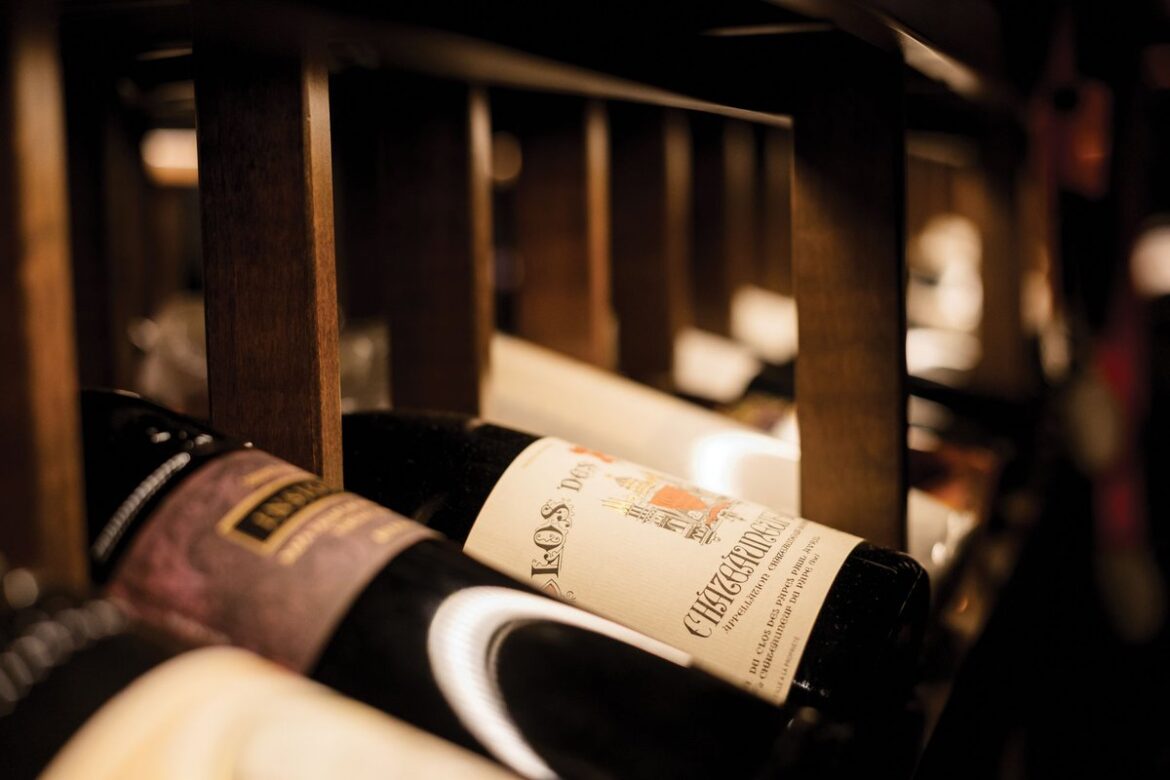There are certain reputations everyone knows in wine, like the pioneering legacy of Robert Mondavi or the criticism of Robert Parker. In Southwest Florida, one of those prominent names is Dixon. Longtime trustees of Naples Children Foundation (formerly Naples Children & Education Foundation) Jim and Laura Dixon have amassed a spectacular collection of cult wines, including crates of highly allocated California labels like Screaming Eagle, Harlan and Realm; the crème de la crème of Champagne; and enough vintage Pétrus to turn a sommelier at a three-Michelin-starred restaurant green with envy.
Their daughter, Brandie, established Naples Wine Collection at the Galleria Shoppes at Vanderbilt in 2013, stocking highly allocated bottles that oenophiles couldn’t find at Total Wine just down the street. “For my clientele, California cabernet and cult California are our niche,” says Brandie, who’s spent decades building her own relationships with vintners and distributors to secure rare, large-format bottles and bring legendary figures like Violet Grgich and Philippe Melka into the shop. Her parents bought the shop a few years later and opened The Cave Bistro & Wine Bar next door, creating one of Naples’ favorite epicurean hubs.
Earlier this year, The Cave closed abruptly as the family dealt with health issues. Now, Brandie has retaken the reins at Naples Wine Collection, which reopens in the same plaza this fall. The shelves are still stocked with vintner-signed magnums and exclusive releases, but for her, nothing conjures nostalgia like California cabernet from one of the state’s most famous estates.
As she reopens the bottle shop, Brandie is spotlighting Overture, the little-known second label from Opus One. Long overshadowed by its iconic parent, the wine has become a sought-after insider’s pick—and for the first time this year, it’s vintage-dated. “Opus One is seen as a celebratory bottle of wine, coveted by collectors and even counterfeited. Not a lot of people know they make a second label,” Brandie says. “Overture is known as Opus you can drink now.”
Long made by blending wines from different years to smooth the edges, Overture shifted with its 2021 vintage—released last fall—to a single harvest. “Being vintage-specific can be a blessing and a curse. You’re tied to the conditions of the growing season,” Brandie says. “Opus One has such a historic track record of producing exceptional vintages; it’ll be interesting to see how Overture evolves.”
Opus One was conceived in 1978 when first-growth Bordeaux scion Baron Philippe de Rothschild and pioneering Napa vintner Robert Mondavi partnered to create a wine that would marry Old World pedigree with New World potential. By 1981, a single case sold at auction for $24,000—then a record for California wine. “You can be sitting in a restaurant and see that label five tables away and know what it is,” Brandie says. “It’s very distinguishable.” A decade later, production moved to a dedicated Oakville winery on prized estate vineyards, including parcels within To Kalon—Napa’s mecca for cabernet sauvignon.
Clusters are still picked and sorted by hand, with only the best fruit making it into Opus One’s long-lived, structured vintages. The selective process comes with a caveat: Plenty of superb fruit that doesn’t fit the exact profile. Rather than waste or sell the surplus, the team followed first-growth Bordeaux estate tradition and launched the Overture label in 1993.
Crafted from the same cabernet-dominant composition of classic Bordeaux varietals and made with nearly identical fermentation and cellaring, the wines diverged mainly in blending. The shift to vintage in 2021 came after the winemaking team identified vineyard blocks along the Napa River, whose fruit proved consistently suited to Overture. “The soils have more clay, and that impacts the structure of the wine. It has a certain softness and approachability,” Christopher Barefoot, Opus One’s communications VP, says. The inaugural vintage shows concentrated red fruit from the unusually dry growing year, balanced by soft acidity and a long, juicy finish.
Though both labels now boast a vintage year, they continue to occupy different roles in the estate’s portfolio. Opus remains the flagship—dense, age-worthy and crafted from its most prized blocks. Overture offers a softer, more immediate expression and a relative value at $195 a bottle, compared to more than $400 for Opus.
Ready to be uncorked and served, the second label has become a customer favorite at Naples Wine Collection. “This wine overdelivers,” Brandie says. “When wine ages, it softens the tannins. It’s so much more elegant. Overture is [already] softer. Not everyone wants to wait 10 or 15 years.”


Dining and Cooking